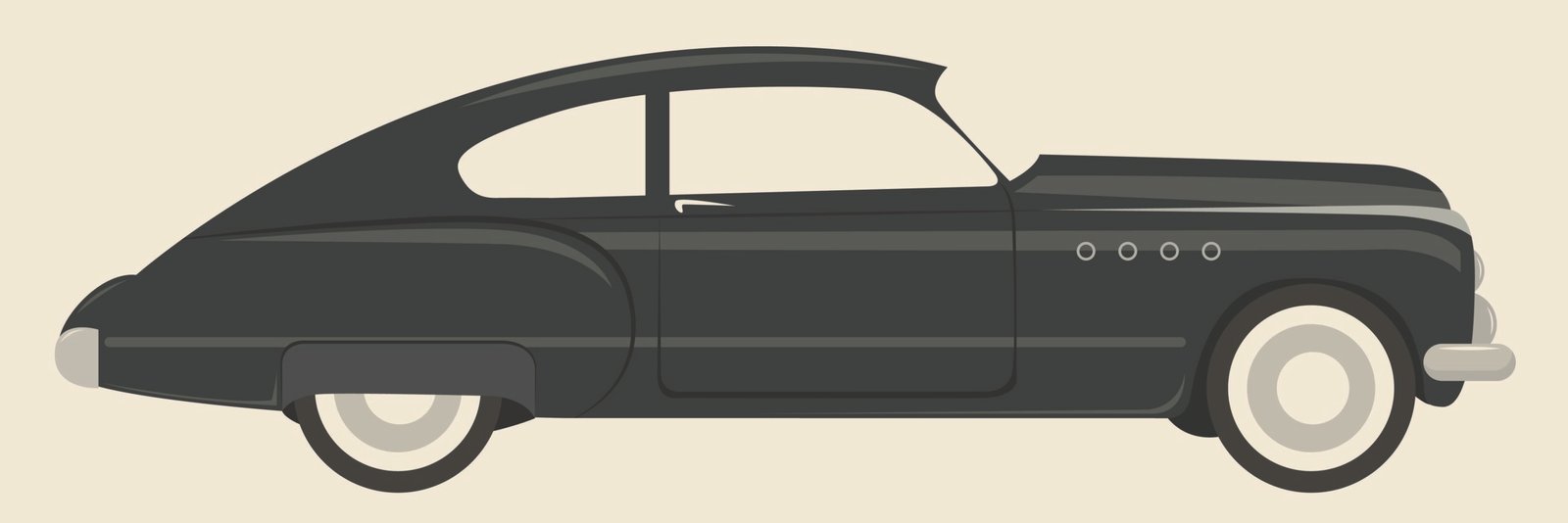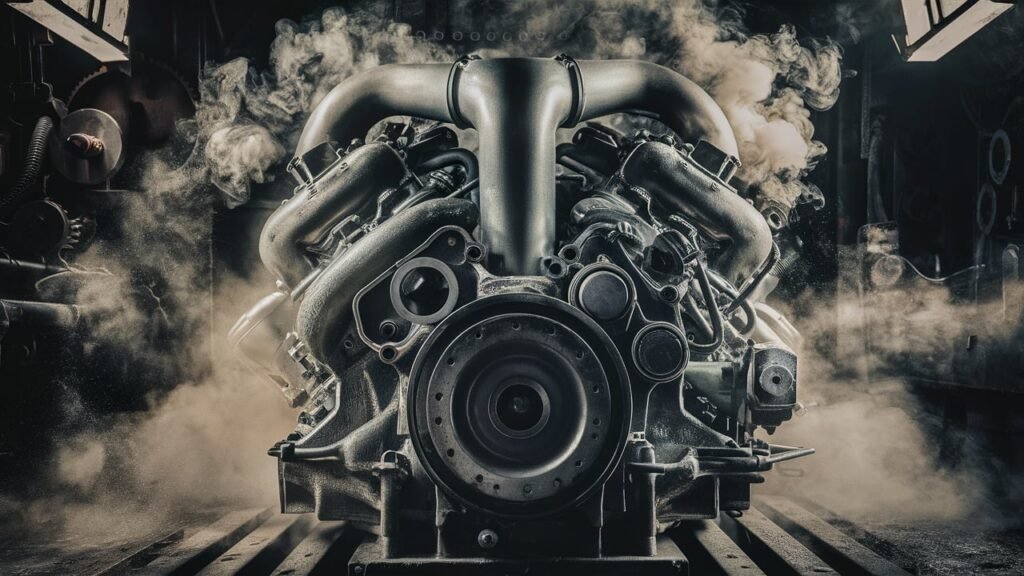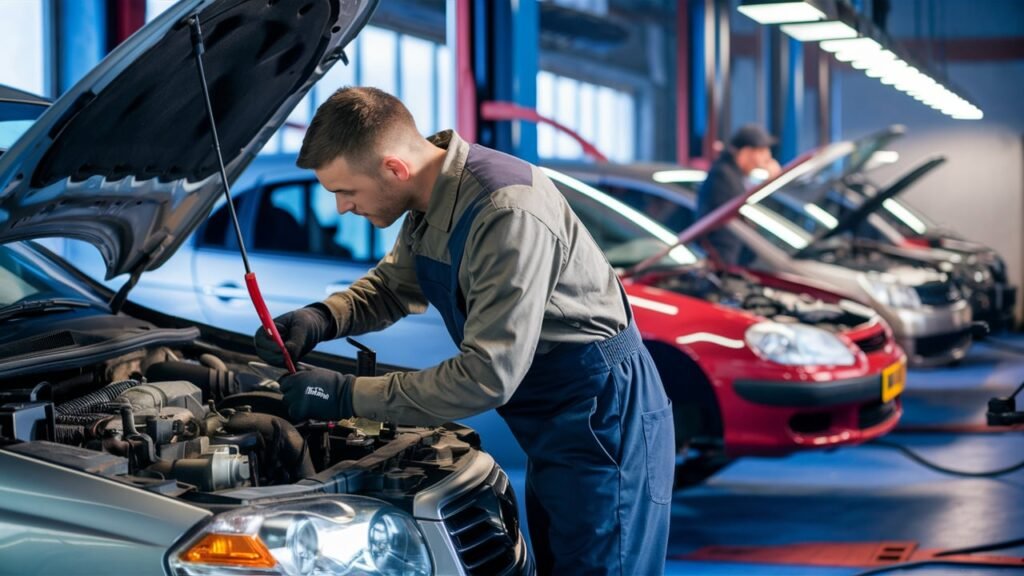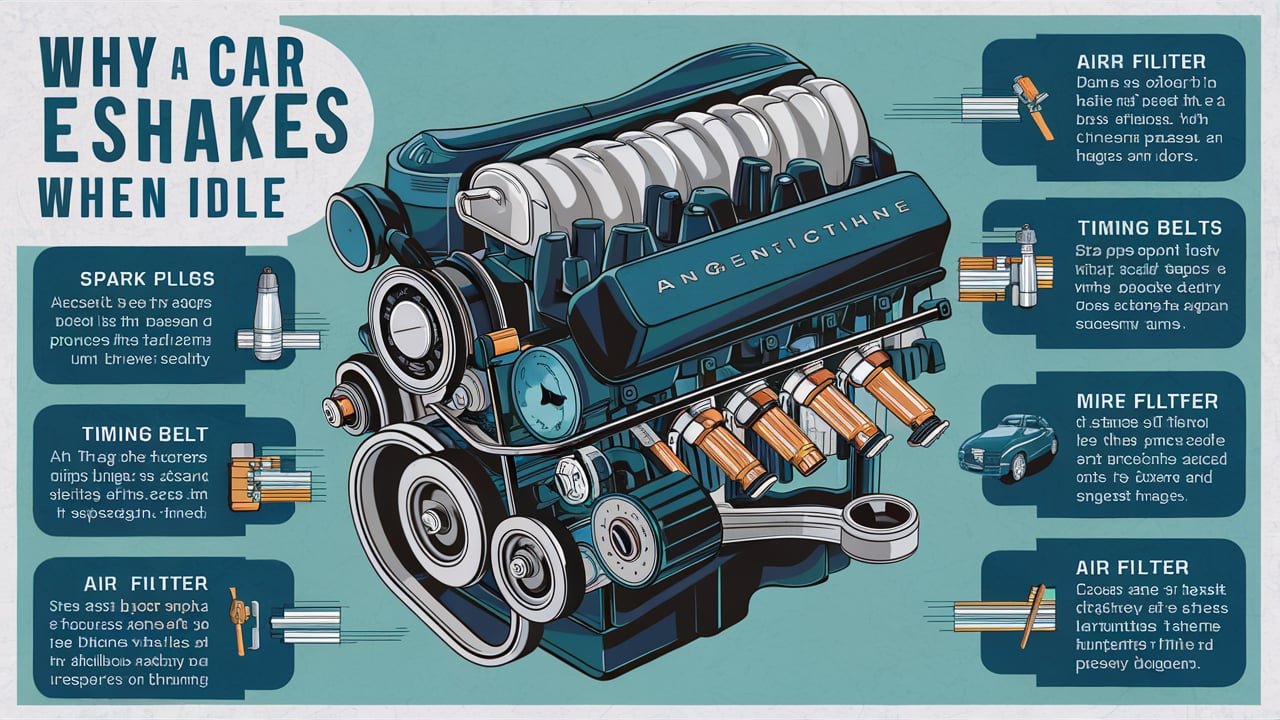
8 Possible Reasons Why Your Car Engine Shakes When Idle
When your car’s engine starts to shake while idling, it’s more than just a mere inconvenience—it could be a signal of underlying issues waiting to be uncovered. Understanding the reasons behind this unsettling occurrence is crucial for maintaining the health and performance of your vehicle.
Addressing these concerns promptly is not only about eliminating that bothersome vibration but also about preventing potential damage that could escalate if left unattended.
Delving into the root causes of why your car engine shakes at idle opens up a realm of possibilities, from misfiring engines to worn-out mounts and electrical system malfunctions. Each aspect unveils a distinct facet of your vehicle’s intricate design, shedding light on how its various components work in harmony.
Navigating through these potential culprits with precision and expertise can not only restore smooth idling but also boost overall driving experience and safety measures.
So buckle up as we embark on an insightful journey into the eight possible reasons why your car engine may exhibit such disruptive behavior at rest—empowering you as a car owner or enthusiast to diagnose, address, and conquer these challenges head-on.
Engine Misfiring.
When your car engine shakes while idling, one common culprit could be engine misfiring. Engine misfires occur when the air-fuel mixture in the combustion chambers fails to ignite properly, leading to uneven power delivery and potentially causing shaking at idle. This issue can stem from various sources, with faulty spark plugs or ignition coils often being primary causes of misfires.
For instance, if a spark plug is worn out or coated in deposits, it may fail to produce a strong enough spark to ignite the fuel mixture consistently. Similarly, damaged ignition coils can disrupt the timing of the sparks needed for proper combustion, resulting in engine misfires and subsequent vibrations.
Regular maintenance plays a crucial role in preventing engine misfires and the associated shaking during idle. Simple tasks like replacing spark plugs at recommended intervals and ensuring ignition components are functioning correctly can go a long way in maintaining smooth engine operation.

By following manufacturer guidelines for tune-ups and inspections, car owners can address potential issues before they escalate into more significant problems like consistent engine misfiring. Additionally, staying proactive with maintenance not only promotes optimal performance but also minimizes the risk of experiencing rough idling due to preventable issues related to misfires.
In essence, understanding how engine misfiring can lead to idle shaking underscores the need for vigilance in maintaining ignition system components. By addressing common causes such as faulty spark plugs or ignition coils through regular upkeep, car owners can mitigate the risk of their engines vibrating while stationary.
Remembering that prevention is often more manageable and cost-effective than repairs after issues emerge highlights how prioritizing maintenance can translate into smoother idling experiences devoid of unnecessary shakes caused by avoidable misfire-related complications.
Vacuum Leaks.
Vacuum leaks in a car’s engine system occur when there is an unintended gap or hole that allows air to enter the system, affecting the delicate balance of air and fuel mixture required for optimal engine performance.
These leaks can lead to erratic idling, stumbling acceleration, and overall decreased engine power due to the disruption in the vacuum pressure essential for various components to operate efficiently. When a vehicle experiences a vacuum leak, it can result in shaking and rough idling as the engine struggles to maintain a consistent rhythm at rest.
Symptoms of vacuum leaks causing engine shaking at idle include fluctuating RPMs (revolutions per minute), stalling when coming to a stop, and potential hissing noises emanating from under the hood.
To diagnose vacuum leaks, technicians often employ techniques like smoke testing or propane enrichment tests to pinpoint areas of concern. Once identified, fixing vacuum leaks typically involves replacing damaged components like intake manifold gaskets or hoses that have deteriorated over time.
Addressing vacuum leaks promptly is crucial for maintaining engine health and efficiency. By ensuring that the system remains sealed and free of unwanted air ingress points, car owners can prevent issues like rough idling or poor acceleration associated with this common problem.
Regular inspections for signs of vacuum leaks during routine maintenance checks can help preemptively catch these issues before they escalate into more severe malfunctions impacting both performance and fuel economy.
Fuel System Issues.
In the intricate symphony of components that orchestrate your car’s performance, the fuel system plays a crucial role in ensuring smooth engine operation. The fuel system encompasses fuel injectors, fuel pumps, and filters that blend precision with efficiency to deliver the right amount of fuel to the engine.
However, when this system encounters hiccups, such as clogged fuel injectors, it can manifest in noticeable engine vibrations while idling. Imagine a congested highway where traffic jams impede the flow – similarly, clogged fuel injectors disrupt the seamless delivery of fuel, causing your engine to stutter and shake at idle.
To maintain a healthy fuel system and prevent unwanted engine vibrations at idle, regular maintenance is paramount. Consider it akin to providing your car with a balanced diet; clean fuel filters ensure contaminants don’t infiltrate your precious engine parts, while periodic inspections can catch early signs of impending issues like clogging before they escalate into disruptive shakes.

Conceptualize each component of the fuel system as a musician in an ensemble; if one instrument goes out of tune or fails to perform optimally, it can throw off the entire harmony. Hence, staying vigilant about fuel system health is key to enjoying a smooth and steady ride without concerning vibrations during idling moments.
Just as an athlete diligently follows a training regimen to maintain peak performance levels, car owners must also adhere to maintenance routines tailored for their vehicles’ specific needs.
Neglecting the care of your car’s fuel system could result in costly repairs down the road or worse – unexpected breakdowns that leave you stranded on the side of the road. So remember, nurturing your car’s fuel system isn’t just about preventing idle shakes; it’s about safeguarding your vehicle’s overall well-being and longevity on the road ahead.
Air intake problems.
Air intake problems can significantly impact your car’s engine performance, especially during idle. The air intake system plays a crucial role in delivering the right amount of air to mix with fuel for combustion.
When this system experiences issues, such as clogged air filters or sensor malfunctions, it can lead to an imbalance in the air-fuel mixture, resulting in engine shaking at idle. For example, a dirty air filter may restrict airflow, causing the engine to run rich and less smoothly when idling.
Signs that point towards air intake problems as the cause of engine shake while stationary include rough idling, reduced fuel efficiency, and hesitation during acceleration. These symptoms can be indicative of issues like vacuum leaks or a failing mass airflow sensor within the air intake system.
Observing these signs promptly can help diagnose and address the underlying concerns before they escalate into more severe engine problems.
To inspect and address air intake issues in your vehicle, start by visually checking the condition of the air filter and intake hoses for any visible dirt or damage. Proceed to inspect the integrity of connections and seals in the air intake system to ensure there are no leaks affecting proper airflow.
Additionally, using diagnostic tools like an OBD-II scanner can help identify any potential sensor malfunctions contributing to engine shake at idle. Addressing these issues promptly through cleaning, repairing, or replacing components can restore smooth operation to your engine while idling.
Engine Mounts Wear Out.
Engine mounts play a crucial role in stabilizing the engine and dampening vibrations caused by its operation. When these mounts wear out over time, the engine’s movements can become more pronounced, leading to noticeable shaking while the car is idle.
This shaking may be felt as subtle vibrations or even as pronounced jerking motions depending on the severity of the mount deterioration. It is essential to address worn-out engine mounts promptly to prevent further damage to other components like exhaust systems and transmission parts due to excessive movement.
Signs indicating deteriorating engine mounts as potential culprits for idle shakes include abnormal engine movements during acceleration or deceleration, clunking sounds when shifting gears, and increased noise levels from the engine bay.
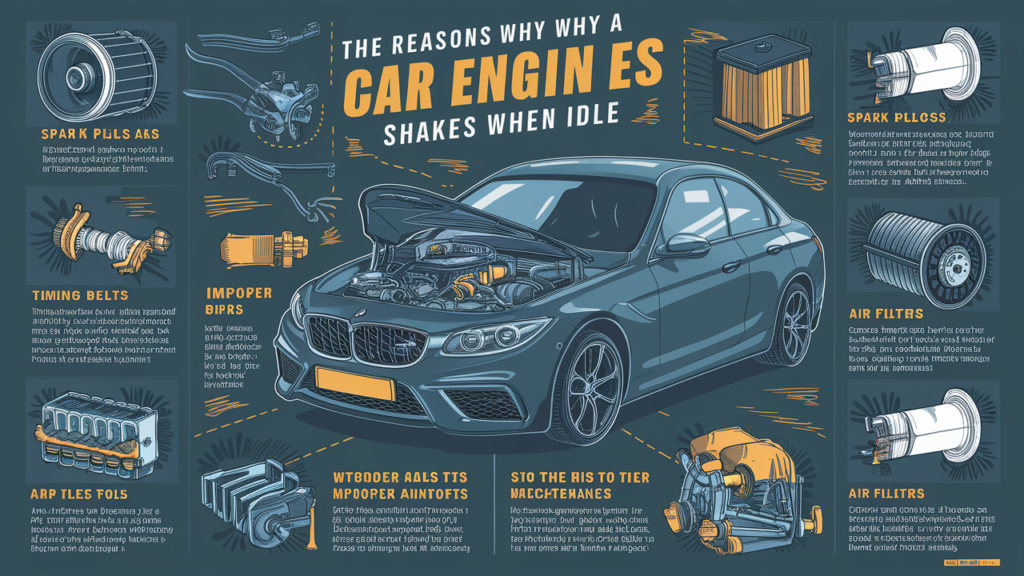
These signs often manifest gradually but worsen over time, affecting not only idle smoothness but also overall driving comfort. Conducting a visual inspection of the engine mounts can reveal cracks, tears, or excessive sagging, confirming the need for replacement.
Replacing damaged engine mounts involves securing the vehicle properly, supporting the engine weight safely with a jack or hoist, removing old mounts without damaging surrounding components, and installing new mounts according to manufacturer specifications.
Proper alignment and torque settings are critical during installation to ensure optimal performance and longevity of the replacements. By addressing worn-out engine mounts proactively, car owners can restore smooth idling conditions and prevent additional stress on other mechanical parts sensitive to excessive vibrations.
Transmission Troubles.
When your car’s engine shakes while idling, transmission issues can often be a contributing factor. The transmission system plays a crucial role in ensuring that power is transferred smoothly from the engine to the wheels.
If there are problems within the transmission, such as low fluid levels or worn-out gears, it can cause vibrations that you may notice when the car is stationary. These vibrations are a clear sign that something might be amiss with your transmission.
Some common transmission problems that can lead to your car shaking when idle include low transmission fluid levels, worn-out clutch components, or issues with the torque converter. Low transmission fluid can hinder proper lubrication and cooling of internal components, leading to increased friction and vibrations.
Worn-out clutch parts can result in rough gear changes and impact the smoothness of idling. Additionally, problems with the torque converter, such as worn bearings or damaged seals, can also manifest as engine shakes during idle periods.
If you suspect that your car’s transmission is causing it to shake while stationary, prompt diagnosis and repair are essential. Visiting a qualified mechanic who can conduct a thorough inspection of the transmission system is recommended.
They will be able to pinpoint the exact issue causing the vibrations and suggest appropriate solutions, which could range from replacing worn-out parts to performing a complete transmission fluid flush and refill. By addressing any underlying transmission troubles promptly, you can restore smooth idling and prevent further damage to your vehicle’s drivetrain.
Electrical System Malfunctions.
The electrical system of a car plays a vital role in its overall performance, including the smooth running of the engine at idle. When certain electrical components malfunction, they can cause noticeable vibrations during idle periods.
Specific parts like the alternator or voltage regulator failing to provide consistent power can lead to engine shakes. Other culprits might include issues with the engine control module (ECM) or faulty wiring disrupting the electrical flow critical for engine stability while stationary.
To diagnose and address these electrical-induced vibrations, testing methods play a crucial role. Utilizing diagnostic tools to scan for error codes related to the electrical system can pinpoint any specific faults causing the engine to shake at rest.

Additionally, conducting voltage tests on key components like the alternator or inspecting wiring harnesses for damage can help identify and rectify underlying electrical issues contributing to idle vibrations.
Repair options for resolving electrical malfunctions vary depending on the exact source of the problem. For instance, if a faulty alternator is identified as the culprit behind the engine shaking, replacing it with a new unit can restore stable idling.
Likewise, if corroded wiring connections are causing disruptions in power delivery leading to vibrations, repairing or rewiring these connections may eliminate the issue. Addressing electrical system malfunctions promptly through proper testing and targeted repairs is essential in maintaining optimal engine performance and mitigating rough idling occurrences effectively.
Exhaust System Concerns.
The exhaust system plays a crucial role in maintaining the optimal performance of your vehicle. When this system encounters malfunctions, it can directly impact the engine, leading to vibrations when the car is at rest.
One common issue with exhaust systems that can cause shaky idling is a damaged or faulty exhaust manifold. The exhaust manifold collects exhaust gases from multiple cylinders and releases them through a single pipe. If this component develops cracks or leaks, it can disrupt the proper flow of exhaust gases, resulting in engine vibrations during idle moments.
Recognizing signs that point towards exhaust-related reasons for shaky idling behavior is essential for timely intervention. An unmistakable indication of an exhaust problem causing engine shakes while idle is unusually loud rumbling noises coming from the underside of your vehicle.
Additionally, if you notice a lingering smell of gas inside or outside the car, it could indicate an exhaust leak contributing to rough idles. Addressing these telltale signs promptly can prevent further damage and ensure smooth engine operation even at standstill.
Implementing proper maintenance practices is key to avoiding exhaust-related disturbances that lead to rough idles. Regularly inspecting the exhaust system for leaks, rust buildup, or damaged components can help identify potential issues before they escalate into more significant problems affecting engine performance.
By staying vigilant and addressing any anomalies in the exhaust system promptly, car owners can minimize the chances of experiencing engine shakes when their vehicle is idle, ensuring a smoother driving experience overall.
Conclusion: Taking Action.
In conclusion, for car owners experiencing the unsettling issue of engine shaking when idle in their vehicles, it is crucial to proactively address this symptom. Whether through seeking professional help from mechanics or pursuing DIY approaches if confident, prompt action can prevent potential further damage to the engine and other components.
Regular maintenance emerges as a fundamental practice that serves as a preventive measure against the recurrence of issues causing car engines to shake during idle periods.
By attentively responding to signs of rough idling and promptly investigating the possible reasons behind engine vibrations at rest, car owners can ensure the longevity and smooth operation of their vehicles.
Whether it involves addressing misfiring engines, vacuum leaks, fuel system anomalies, air intake problems, worn-out engine mounts, transmission troubles, electrical system malfunctions, or exhaust concerns contributing to shaky idling behavior – taking decisive action is paramount in maintaining optimal vehicle performance.
Remembering the significance of proactive maintenance can significantly reduce the likelihood of encountering such issues again in the future, ultimately enhancing both the driving experience and the overall health of your vehicle.
